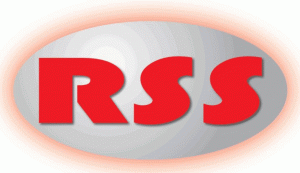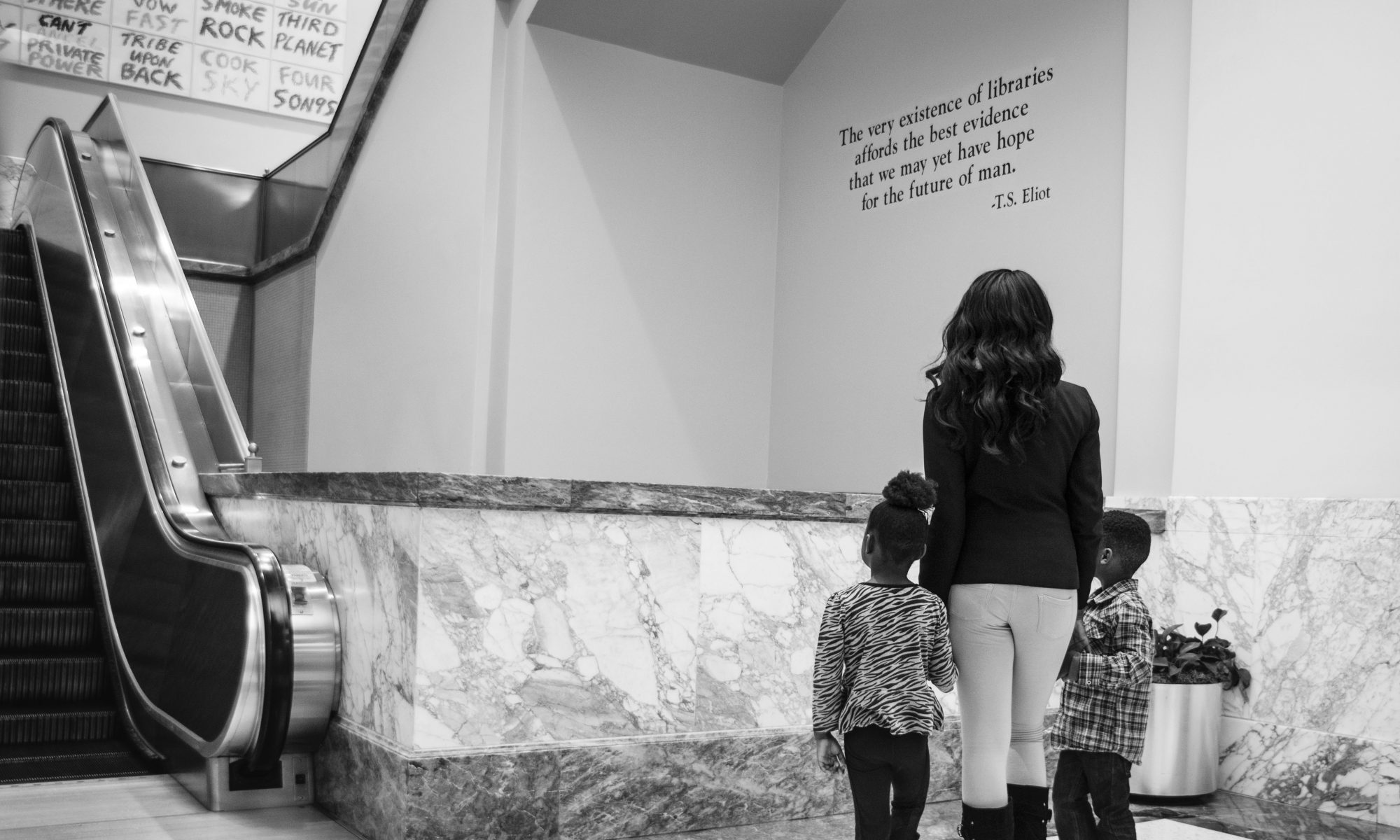 Denise Wetzel, Editor
Denise Wetzel, Editor
Message from the Chair
Hello all,
I’m so happy to begin my term as RSS Chair! Crystal Lentz deserves a big thank you for her leadership of the section during 2015-2016.
RSS had a very busy Annual Conference. The RSS Open House and All-Committee Meeting was well attended. We were happy to welcome some new members to RSS, and some visitors who are considering joining our section. The section also participated in RUSA 101, held on Friday at the beginning of Annual, in order to meet with potential members. The Joint ETS/ RSS Happy Hour was a great way to catch up with our ETS colleagues. Committees held meetings, programs, and discussion forums during Annual. To learn more about all of the work our committees did during Annual, please check out the committee reports.
There are a few projects RSS hopes to work on this year including a revision of both our RSS Handbook and the RSS Bylaws. Additionally, RSS hopes to revise our webpages to reflect the work of our committees and the section. We will also be working to institute changes that came from our Section Review, completed this past spring.
RSS is still hoping to fill just a few remaining spots on committees; we are seeking members for both the Discovery Services Committee and the Young Adult Reference Services Committee. Please contact me if you would like to volunteer for either of those committees.
Please feel free to contact me with any questions. I’m looking forward to a great year for RSS!
Amy Rustic,
RSS Chair, 2016-2017
aer123@psu.edu
RSS Honor Roll
It’s that time of year! We want to recognize you and your contributions to RSS!
The RSS Honor Roll gives recognition to active RSS members who have served the section in three different capacities since its inception.
If you have been a member of three or more committees or discussion groups since RSS was established in 2004 and have not previously been added to the honor roll, please send your name and a list of the three ways you have served RSS to Ellen Keith at keith@chicagohistory.org
Not only will you become a member of this esteemed group, you will also be recognized at ALA Annual in Orlando!
Join the RSS Honor Roll today!
RSS COMMITTEE REPORTS
Education & Professional Development for Reference Committee
Our panel event, Educating for the Future of Reference, for Annual 2016 in Orlando built upon earlier discussion forums around the topic of how well (or not) the professional degree prepares us for the current “reference” environment. The program explored whether “reference education” in library schools currently helps provide librarians with relevant skills and materials for the current “reference” marketplace as seen from the perspective of library administrators/librarians who hire and train, and also from the perspective of library educators.
Panelists included Jason Coleman (Kansas State University), Wendi Bost (Orange County Public Library System), Dr. Linda Lillard (Library Science Department at Clarion University), and Dr. Eileen Abels (Dean of the Simmons School of Library and Information Science).
Panelists were asked to address the following questions:
1) Should a reference/information services class be a required element of an LIS program? Why or why not? Here the consensus was generally, “yes” (although not resoundingly so). The content of such a class should focus more on the communication and instructional skills needed to effectively work with library users. Being “in tune” with what users need and want is important. Technology skills are also critical.
2) In your opinion, does “reference education” in library schools currently help provide librarians with relevant skills and materials for the current “reference” marketplace? What is working/what is not? Again, the consensus is that “finding facts” is a rarity in the current reference environment. Reference/public services do add value to the array of services a library offers by directing users to quality information where that is desired. Often “just enough” is O.K. with users, though – “satisficing.”
3) What are the most important skills students need to learn in order to provide high-quality reference assistance? Are there differences in this answer based on whether you are in a public or academic environment? Needed: communication skills, technical skills, understanding of how databases are constructed, and how search engines and services are constructed and operate.
4) Thinking of the different “reference” models and formats that are employed in different types of libraries, can there be a set of competencies broad and flexible enough that it would be valuable across multiple situations? If so, how does this affect reference education? Much of this is covered in the answers above.
5) How do library/information schools determine whether changes are needed in curriculum/coursework? Through attendance at conferences and information from graduates. It was conceded that detecting the changes are not easily accomplished.
6) If practitioners detect that adjustments are needed/desired, how would library school professors/deans advise us to most effectively get this information to library schools who wish to keep coursework relevant? (See #5)
Audience participation followed the panelist talks. About 40 people attended the session and written evaluations were largely positive.
Bryna Coonin, Chair 2016-2017
Evaluation of Reference and User Services Committee (ERUS)
ERUS received hundreds of responses to our survey, “How are reference data collected and used in 2016?” Thank you! You’re amazing!!! We will be analyzing results for the foreseeable future.
Rebecca Graff, Chair 2016-2017
Health and Medical Reference Committee
Since the last report, the Committee primarily worked on collaborating with ACRL’s Health and Science Interest Group to create the content for a Discussion Forum at ALA. On June 25, 2016 in Orlando, the two committees presented: Implementing Health and Medical Reference Guidelines: Training librarians, Paraprofessionals and Part Time Staff.
Chair of HMRC, Laura Haines, presented a brief PowerPoint presentation curriculum, entitled Quick Start Guide to Providing Excellent Health Reference, to a group of 25 attendees. This Quick Start guide was created using RUSA’s Health and Medical Reference Guidelines, and is intended to be used by those training others how to provide high quality health and medical reference service. The curriculum gives examples of best practices and suggested reference behaviors, and references the specific RUSA Health and Medical Guidelines for each behavior. All attendees who wished to have a copy of the Quick Start Guide to adapt to their own training needs in their own libraries left their email addresses. Shortly after the meeting, the Chair emailed this PowerPoint to all interested attendees.
After the presentation of the Quick Start Guide and a brief discussion, attendees were divided into four tables and given a reference scenario and discussion prompts. Each group used the Health and Medical Reference Guidelines (provided) and the Quick Start Guide to discuss the best practices for that particular scenario. After a lengthy and engaged discussion, the individual tables presented their reference scenarios and highlights from their discussion to the larger group. Themes and common topics were identified.
The response to the Quick Start Guide, RUSA’s Health and Medical Reference Guidelines, and the reference scenarios was overwhelmingly positive. Many attendees praised the succinct nature of the Guidelines and appreciated the Quick Start Guide’s “translation” of the Guidelines into practices and behaviors. Many remarked that they had been unaware of the Health and Medical Reference Guidelines existence, and encouraged the HMRC and ACRL’s HSIG to do further promotion of the Guidelines. No doubt, future endeavors of the HMRC will focus on this promotion.
Laura Haines, Outgoing HMRC Chair
Ann Glusker, HMRC Chair, 2016-2017
Library Services to an Aging Population Committee
The Library Services to an Aging Population Committee met at the 2016 ALA Annual Conference on Saturday, June 25th, from 8:30-10:00 a.m. The group discussed the completion of guidelines, a program proposal for ALA 2017, the reframing of aging, and participation in future workshops, conferences, etc.
The committee has been asked to assist with revamping the “Keys to Engaging Older Adults@ your library.”
Update: 2017 ALA Annual program proposal was approved. Conference attendees may look forward to the following program:
Aging – A new frontier: Implications and Opportunities for Libraries and Librarians: Growing old – it’s not what it used to be. The panel will explore the new frontier of aging with an emphasis on how libraries and librarians can better understand, as well as embrace, the myriad of opportunities that come along with serving mature adults. From hosting benefits access programs to jump starting business endeavors, participants will explore how to surf the “age wave” and all that it offers.
Fatima Perkins, Chair 2016-2017
Research and Statistics Committee
This year, the Research & Statistics Committee hosted the 22nd Annual Reference Research Forum on Sunday, June 26th from 10:30-11:30 a.m. at the Orange County Convention Center in Orlando, FL. The event was attended by close to 100 people. Three research teams, selected through a double-blind review process, presented their findings. Laura Hibbler from Brandeis University presented findings from a study that involved interviewing first-year students at three different points while they were working on a research paper. Tarin Tobin Cataldo from the University of Florida presented findings from a three-year, IMLS-funded research project exploring how students from students from 4th grade to graduate school determined the credibility of digital resources. Finally, Amanda L. Folk from the University of Pittsburgh at Greensburg discussed patron motivations for asking questions to librarians based on Dweck’s theories of intelligence. The committee also reviewed and posted an annotated bibliography of articles relating to reference research for the 2015 Reference Research Review available at: http://connect.ala.org/node/254571.
Cynthia Levine, Co-chair 2016-2017
David Ward, Co-chair 2016-2017
Virtual Reference Committee
The Virtual Reference Services Committee and the Virtual Reference Discussion Forum Group held a joint Discussion Forum during ALA Annual. Fact or Fiction: What Virtual Reference Training Works and What Holds Promise was considered successful, as there was a lively discussion among the attendees.
The committee submitted our revised and updated guidelines, “Guidelines for Implementing and Maintaining Virtual Reference Services,” to the RUSA Standards and Guidelines Committee. They are currently being reviewed and our committee will be receiving feedback from the RUSA Standards and Guidelines Committee in the coming months.
And finally, the RSS and ETS Boards approved the dissolution of duplicate committees. Specifically, the Virtual Reference Discussion Group and the Virtual Reference Services Committee were merged into one joint ETS/RSS group, whose charge is “to identify and study issues relating to virtual reference services, and to evaluate and promote technological and service standards, guidelines, and best practices” for these services in all types of libraries.
Hillary Kraus, Co-chair 2016-2017
Karen Reiman-Sendi, Co-chair 2016-2017
